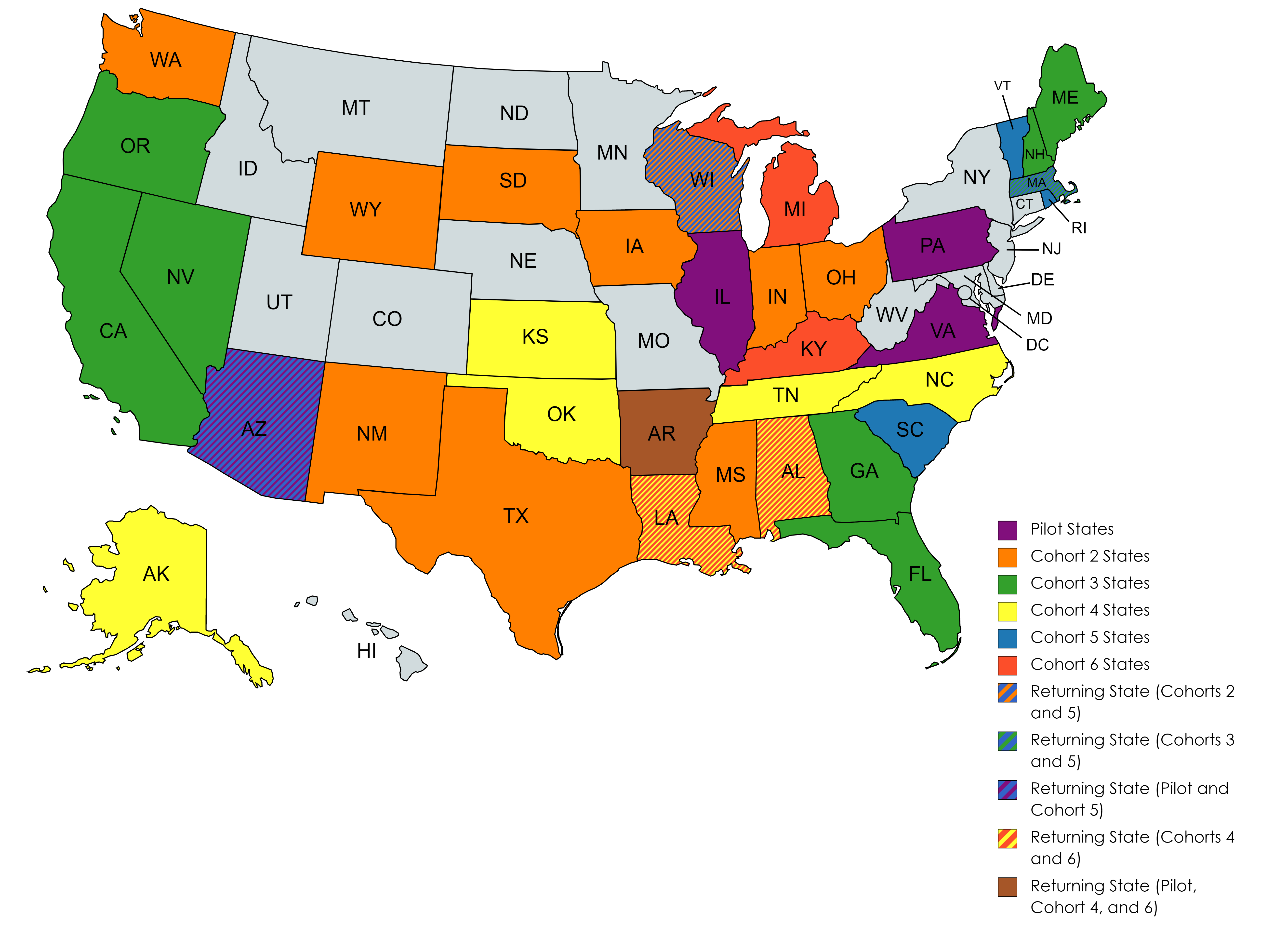
The Teaching the Skills That Matter in Adult Education project (TSTM) trains teachers to integrate the skills that matter to adult students using approaches that work across critical topics. Using the project's tools and training, adult education teachers can teach the transferable skills students need in these critical contexts.
The 9 skills that matter are:
- Adaptability & willingness to learn
- Communication
- Critical thinking
- Interpersonal skills
- Navigating systems
- Problem solving
- Processing & analyzing information
- Respecting differences & diversity
- Self-awareness
The 5 topic areas are:
- Civics education
- Digital literacy
- Financial literacy
- Health literacy
- Workforce preparation
The 3 approaches that work are:
- Integrated & contextualized learning
- Problem-based learning
- Project-based learning
The following resources can help you to integrate these skills into your classroom.
Teaching the Skills That Matter Toolkit
The TSTM Toolkit was developed by adult education experts to support teachers in using approaches that work to help students gain the skills that matter. The toolkit has seven sections:
- The Overview section introduces the key toolkit components;
- Five topic-based sections each including an issue brief, a case study, lesson plans, and an annotated bibliography; and
- The Other Tools and Resources section, which has additional tools and resources to support the integration of the skills into your instruction.
What Past Participants Have Said
"TSTM has changed the lives of our learners because they value knowledge inside and outside of the classroom. TSTM provides a vision."
"TSTM has encompassed the skills that adults need to not only survive, but thrive in our world."
"We have implemented rigorous life-skills focused curricula that addresses needs of learners and is adaptable to changing needs over time."
"Our learners now have the skills and knowledge to be successful in gaining employment. They know where to go for information and assistance on health issues and financial management, among various other life skills."
"TSTM allows participants to identify what they know and use and to develop the knowledge and skills that will make their dreams come true."
"More students are aware of their barriers and the ways to overcome them. The skills they have been taught will allow them to excel in the future."
TSTM Benefits
- Implement research and evidence-based units/lessons that support standards-based instruction and the skills that matter for students
- Collaborate and become part of a learning community with adult educators from other states focused on improving instruction
- Developed units and lesson plans based on effective elements of instruction
- Receive individualized coaching from national content experts
- Collaborate with other state professional developers and project experts
- Build on current instructional skills that matter for ABE and ELA students
TSTM States Map

Over 30 states have been TSTM trained. To find out what is happening in your state with TSTM implementation, please contact your state PD leader.
 Background and Contact Information
Background and Contact Information
The Workforce Innovation and Opportunity Act (WIOA, Pub. L. 113-128, July 2014), the first major reform in the publicly funded workforce system since 1998, increases access to employment, education, training, and support services for individuals, particularly those with barriers to employment. Title II of WIOA, the Adult Education and Family Literacy Act (AEFLA), presents an extraordinary opportunity to improve the quality of life for individuals with low skills. WIOA Section 203 encourages programs to provide instruction tied to "activities, programs or services designed to help an individual acquire a combination of basic academic skills, critical thinking skills, digital literacy skills and self-management skills, including competencies in utilizing resources, using information, working with others, understanding systems and obtaining skills necessary for successful transition into and completion of postsecondary education or training, or employment." (WIOA, Pub. L. 113-128, Section 203, July 2014).
Based upon public comments received during the WIOA rule-making process, technical assistance conversations with states, and ongoing community of practice conversations in LINCS, it is clear to OCTAE that adult education teachers need support and training in how to meaningfully integrate these skills (i.e., the skills that matter) into regular adult education classroom instruction.
Teaching Skills That Matter in Adult Education is being conducted by the American Institutes for Research, under contract to the U.S. Department of Education. For more information, please email tstm@air.org.






